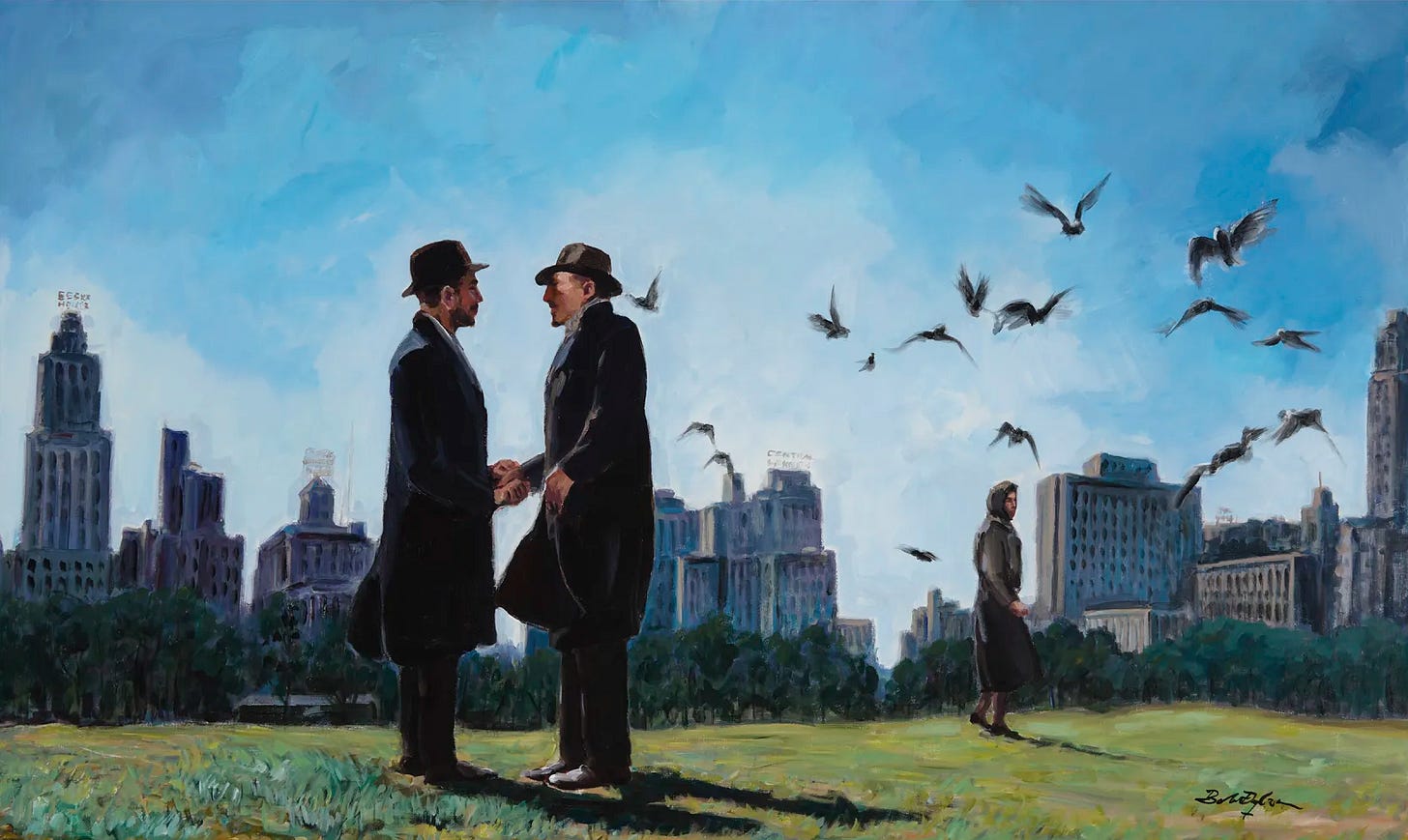Odds Against Tomorrow. 1959. Harry Belafonte.
Bob Dylan painted a scene from this film. Full film set to play
I have set the film to play here at midnight UK time:
Pigeons. 2021. Acrylic paint on canvas. 108.6 x 169.7 cm.
After asking yesterday in the Honkeytonk Man post if anyone recognised this scene — Ed grazda replied, pointing me towards the film Odds Against Tomorrow… so thank you to him for this!.
Honkeytonk Man. 1982 / Painting of a scene from this film by Bob Dylan
Honkeytonk Man. 1982. Produced, directed and starring Clint Eastwood and his son Kyle Eastwood. Screenplay by Clancy Carlie — based on his 1980 novel of the same name. Marty Robbins appears in the film — his last appearance before he died, just prior to the release of the film — December 15, 1982. The story of Clint Eastwood’s character, Red Stovall, is…
—
It is an American film noir, produced and directed by Robert Wise. Starring Harry Belafonte, Robert Ryan and Ed Begley.
Bob Dylan refers to Odds Against Tomorrow in his book Chronicles Volume One—
"He was a movie star, too, but not like Elvis. Harry was an authentic tough guy, not unlike Brando or Rod Steiger. He was dramatic and intense on the screen, had a boyish smile and a hard-core hostility. In the movie Odds Against Tomorrow, you forget he’s an actor, you forget he’s Harry Belafonte. His presence and magnitude was so wide. Harry was like Valentino. As a performer, he broke all attendance records. He could play to a packed house at Carnegie Hall and then the next day he might appear at a garment center union rally. To Harry, it didn’t make any difference. People were people."
Bob Dylan made his professional recording debut with Harry Belafonte — playing harmonica on his album Midnight Special.
Also from Chronicles:
"Astoundingly and as unbelievable as it might have seemed, I’d be making my professional recording debut with Harry, playing harmonica on one of his albums called Midnight Special. Strangely enough, this was the only one memorable recording date that would stand out in my mind for years to come. Even my own sessions would become lost in abstractions. With Belafonte I felt like I’d become anointed in some kind of way. He did the same thing for me that Gorgeous George did. Harry was that rare type of character that radiates greatness, and you hope that some of it rubs off on you. The man commands respect. You know he never took the easy path, though he could have."
Earlier in the chapter —
"Somewhere he had said that he didn’t like to go on television, because he didn’t think his music could be represented well on a small screen, and he was probably right. Everything about him was gigantic. The folk purists had a problem with him, but Harry—who could have kicked the shit out of all of them—couldn’t be bothered, said that all folksingers were interpreters, said it in a public way as if someone had summoned him to set the record straight. He even said he hated pop songs, thought they were junk. I could identify with Harry in all kinds of ways."
—
—
nm.








Belafonte was the first musican to travel with his own sound system - robert alderson. Bob hired him and his sound equipment to record the 65 World Tour.
His paintings look like ai